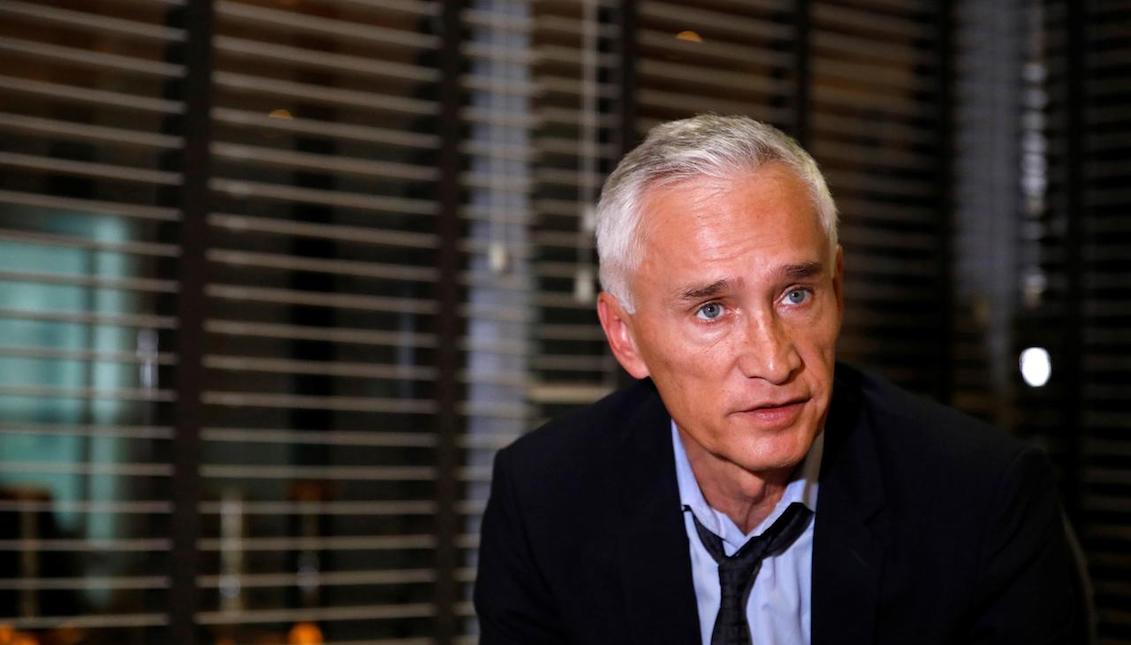
Jorge Ramos on Maduro: ‘He didn’t like the questions we were asking’
The detention of Univisión's team of journalists by the Maduro regime at the Miraflores Palace highlights the authoritarian rule and media censorship present…
"If they do this with us who are foreign journalists, imagine what they do here with the Venezuelans," Jorge Ramos told Patricia Janiot in a telephone call upon being released from arbitrary detention at the Miraflores Palace in Caracas on Monday.
After receiving permission to interview the former Venezuelan president at the palace, the renowned Mexican-American journalist Jorge Ramos was detained, along with his Univision team, for two hours on Monday night.
In a conversation that lasted less than 20 minutes, Ramos allegedly showed Maduro a video showing Venezuelans eating from a garbage truck in the vicinity of Miraflores, questioning the reality of the humanitarian crisis in the country.
Este es el video que @jorgeramosnews le mostró a Nicolás Maduro y que lo molestó: venezolanos comiendo de un camión de basura. pic.twitter.com/u1Uodrp0GS
— Univision Noticias (@UniNoticias) 26 de febrero de 2019
"He didn’t like the things we were asking him about the lack of democracy in Venezuela, about torture, political prisoners, the humanitarian crisis they are experiencing," said Ramos.
Maduro suddenly stood up and canceled the interview.
"Immediately afterward, one of his ministers, Jorge Rodríguez, came to tell us that the interview was not authorized," the journalist continued.
Their equipment was confiscated, and the team was separated into interrogation rooms "with the lights off,” where they were forcibly stripped of their cellphones.
RELATED CONTENT
"They kept our work. They kept the interview," he said.
Univisión president Daniel Coronell reported the situation on social media. His posts were followed by statements from the U.S. State Department and other governments in the region, including the López Obrador administration in Mexico, one of the few that hasn't recognized Juan Guaidó as Venezuela's interim president.
.@StateDept has received word the journalist @jorgeramosnews and his team are being held against their will at Miraflores Palace by Nicolas Maduro. We insist on their immediate release; the world is watching. #Venezuela
— Kimberly Breier (@WHAAsstSecty) 26 de febrero de 2019
"Our country calls for respect for freedom of expression and endorses its obligation in defense of the security of Mexican citizens abroad," the Mexican Foreign Ministry wrote on Twitter.
About an hour later, Univisión broadcasted a picture of Ramos in his hotel room, announcing that he had been "set free."
Meanwhile, Maduro's spokesman, Jorge Rodríguez, also took to Twitter to criticize the Univisión team, labeling it a "cheap show." Rodriguez also blamed the U.S. State Department for "inventing a new false positive" for the "military intervention in Venezuela."
En el mismo momento en que @ABC publica una entrevista con el Pdte @NicolasMaduro, el Dep de Estado inventa un nuevo falso positivo con un show y un montaje
— Jorge Rodríguez (@jorgerpsuv) 26 de febrero de 2019
Rodriguez echoed Maduro's words from an interview with ABC on Monday, in which the former Venezuelan leader told Tom Llamas that "the U.S. government - which is backing opposition leader Juan Guaidó - is 'trying to fabricate a crisis to justify political escalation and a military intervention in Venezuela to bring a war to South America,'" CNN reported.
Maduro's statements coincided with the meeting of U.S. Vice President Mike Pence with the Lima Group in Bogota, to discuss a new international diplomatic strategy against members of the Chavez regime in the wake of the violent events over the weekend along Venezuela's borders with Colombia and Brazil.











LEAVE A COMMENT: